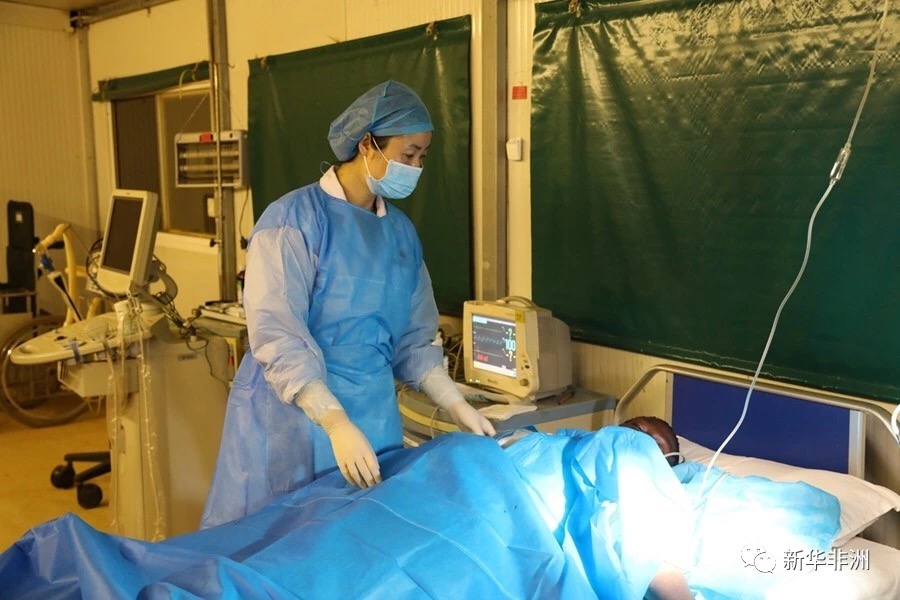
8th Chinese peacekeeping medical unit saves lives in South Sudan

To thousands of refugees, especially women, in war-torn South Sudan, the 8th Chinese Peacekeeping Medical Detachment to South Sudan has often been the difference between life and death.
The unit provides valuable support functions for two medical camps in the Wau region. The camps, set up by the World Health Organization and the International Medical Assistance Center are believed to be the only medical facilities Wau. The facilities can only offer very basic care, especially in obstetrics and gynecology. However the peacekeeping medical team steps in to assist the camps with production, prenatal inspections, and post-natal care guarantees. Duan Yao, is the obstetrician of the peacekeeping medical unit.
12:00 am 26, April 2018

The peacekeeping medical team receives a rescue request from the UN Department of Relief, Reconstruction, and Resettlement Department of the United Nations Mission in South Sudan (UNSOM). A pregnant woman in the refugee camp is bleeding heavily due to miscarriage and needs urgent treatment.
Duan quickly examines the patient and discovers the woman’s blood pressure is low, that the patient has lost between 800-1000 ml of blood and is in a mild state of shock.
The doctor immediately provides the pregnant patient with a series of anti-shock treatments such as rapid intravenous rehydration with dual-venous channels, oxytocin, intravenous drip, and an electrocardiogram. At the same time, Peng Zhaojun, a nurse on duty, performed blood tests and electrocardiogram examinations on two other pregnant women in need. On-duty doctor, Wen Feng gets information their family members in order to understand the condition of the women. Dr. Wen is also there to calm the family’s emotions.
After communicating with Wen, Duan Yao learns that these two women are twins, have been pregnant for 2 months and had dealt with continuous abdominal pain and massive bleeding for the past 2 hours. After B-ultrasound diagnosis, it was found that twins had spontaneous abortions, but due to incomplete abortion, continuous heavy bleeding occurred. Although it is a spontaneous abortion, if a large amount of bleeding cannot be treated immediately, it will lead to shock and even life-threatening and urgent surgery must be performed immediately.

However, performing surgery at the Wau camps isn’t easy. Many of the patients don’t speak English or Chinese, which makes communication extremely difficult. This particular surgery has to take place in the middle of the night. Making matters even more worse, general anesthesia cannot be administered to the patients to ease their pain. Anesthesia nurse Li Yan clasped the hands of the women and soothed their emotions with eye contact, gentle smiles and deep breathing exercises. Keeping the women calm allows Duan Yao could to focus on surgery. After 20 minutes of hard work, the bleeding is stopped. A few minutes later the vital signs of both patients gradually return to normal.
When Duan Yao made a gesture of “OK” to them, grins appear on the relieved faces of the women. Family members also express their relief. Afterwards, Duan Yao also explains to the patients and their relatives the relevant precautions for the post-care. The family expressed their sincere gratitude to the Chinese doctors for their professional, rigorous, and efficient professional qualities.






